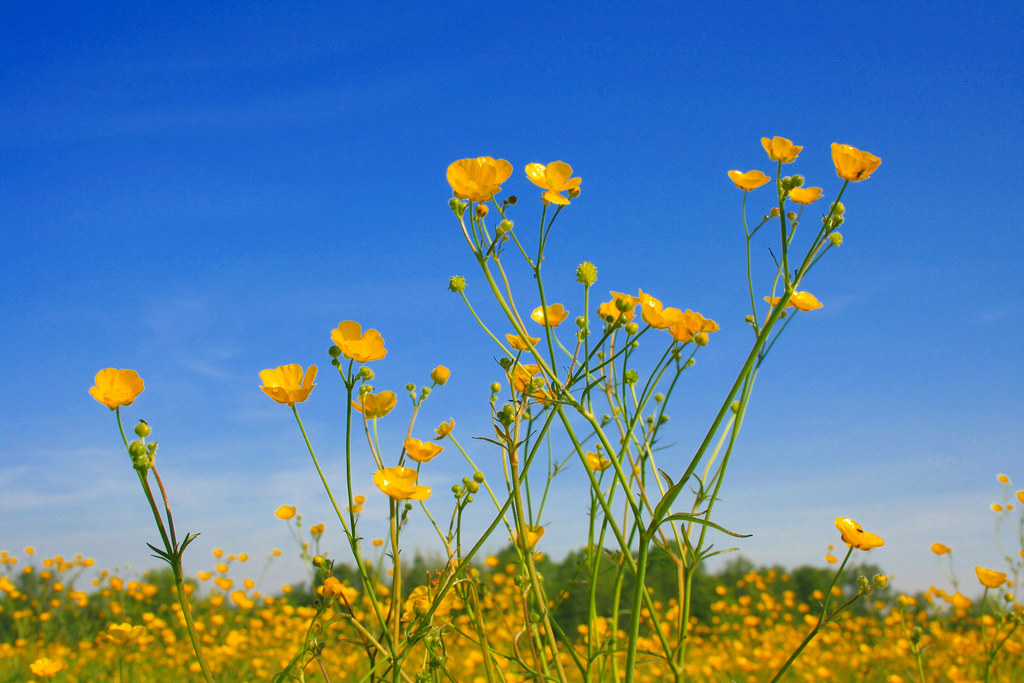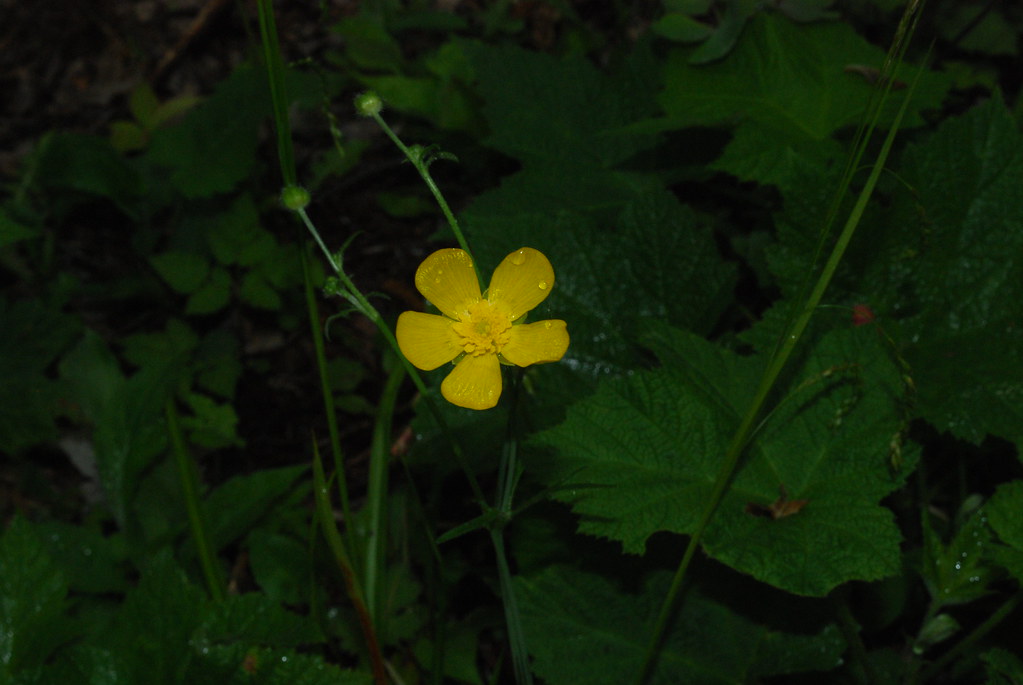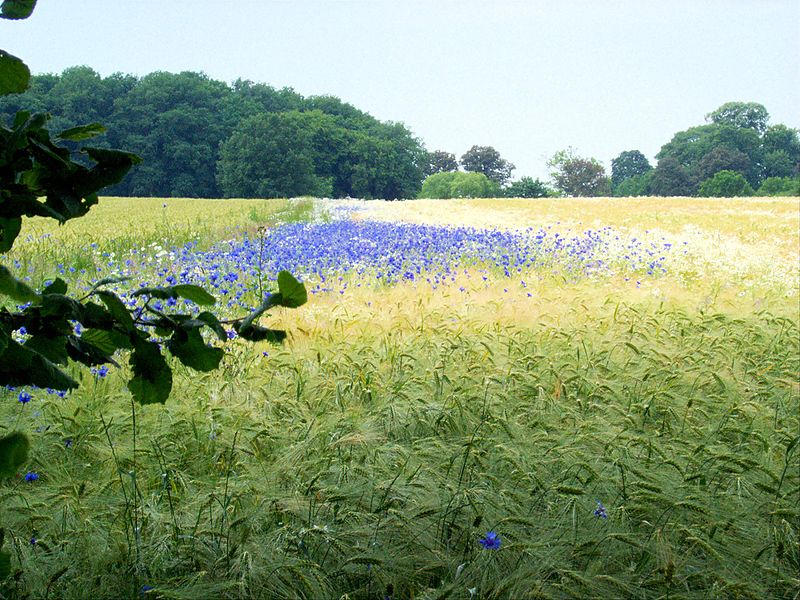.

Unidentified Asteraceae, Death Valley National Park: photo by Mila Zinkova, 2005
He was found lying on the ground. No one had missed him. No
one was looking for him. An old woman found him. To put it vaguely. It happened
so long ago. She was straying in search of wild flowers. Yellow only. With no
eyes but for these she stumbled on him lying there. He lay face downward and
arms outspread. He wore a greatcoat in spite of the time of year. Hidden by the
body a long row of buttons fastened it all the way down. Buttons of all shapes
and sizes. Worn upright the skirts swept the ground. That seems to hang
together. Near the head a hat lay askew on the ground. At once on its brim and
crown. He lay inconspicuous in the greenish coat. To catch an eye searching
from afar there was only the white head. May she have seen him somewhere
before? Somewhere on his feet before? Not too fast. She was all in black. The
hem of her long black skirt trailed in the grass. It was close of day. Should
she now move away into the east her shadow would go before. A long black
shadow. It was lambing time. But there were no lambs. She could see none. Were
a third party to chance that way theirs were the only bodies he would see.
First that of the old woman standing. Then on drawing near it lying on the
ground. That seems to hang together. The deserted fields. The old woman all in
black stockstill. The body stockstill on the ground. Yellow at the end of the
black arm. The white hair in the grass. The east foundering in night. Not too
fast. The weather. Sky overcast all day till evening. In the west-north-west
near the verge already the sun came out at last. Rain? A few drops if you will.
A few drops in the morning if you will. In the present to conclude. It happened
so long ago. Cooped indoors all day she comes out with the sun. She makes haste
to gain the fields. Surprised to have seen no one on the way she strays
feverishly in search of the wild flowers. Feverishly seeing the imminence of
night. She remarks with surprise the absence of lambs in great numbers here at
this time of year. She is wearing the black she took on when widowed young. It
is to reflower the grave she strays in search of the flowers he had loved. But
for the need of yellow at the end of the black arm there would be none. There
are therefore only as few as possible. This is for her the third surprise since
she came out. For they grow in plenty here at this time of year. Her old friend
her shadow irks her. So much so that she turns to face the sun. Any flower wide
of her course she reaches sidelong. She craves for sundown to end and to stray
freely again in the long afterglow. Further to her distress the familiar rustle
of her long black skirt in the grass. She moves with half-closed eyes as if
drawn on into the glare. She may say to herself it is too much strangeness for
a single March or April evening. No one abroad. Not a single lamb. Scarcely a
flower. Shadow and rustle irksome. And to crown all the shock of her foot
against a body. Chance. No one had missed him. No one was looking for him.
Black and green of the garments touching now. Near the white head the yellow of
the few plucked flowers. The old sunlit face. Tableau vivant if you will. In
its way. All is silent from now on. For as long as she cannot move. The sun
disappears at last and with it all shadow. All shadow here. Slow fade of
afterglow. Night without moon or stars. All that seems to hang together. But no
more about it.
Samuel Beckett: One evening, from The Complete Short Prose 1929-1979 (1985)
Centaurea cyanus and chamomile in a field of barleycorn, Munster, NRW, Germany: photo by Guido Gerding, 2006

Buttercup field, Dedham, Essex: photo by Keven Law, 11 May 2008

Swamp Buttercup (Ranunculus hispidus), Newport Wilderness State Park, Door County, Wisconsin: photo by J M, 22 May 2010









13 comments:
The buttercup and dandelion go well with the dear dear heart of Samuel Beckett
Who better to write the epitaph for a dying culture...
By the same horticultural observer:
Samuel Beckett: A Jar of One's Own
Samuel Beckett: A Love Story
Samuel Beckett: An Odd Bird ("What ruined me at bottom was the athletics")
Samuel Beckett: Apodosis
Samuel Beckett: Aporia
Samuel Beckett: Nothing
Samuel Beckett: Watt / Andreas Gursky (Tiny Details of the Big Picture)
Samuel Beckett: Worstward Ho
Conrad,
Yes, yes. And I could imagine him lying there unnoticed and free of all portent, there in the fields, beneath the common flowers.
When I first read this story I recall thinking, "How tragic." But as I reflected on it, I imagined that maybe tragedy is best reserved for knowledge, a kind of knowledge anyway, and predicated on a search -- in this case of the dead body, a knowledge of who and a pursuit of why.
Brad,
I almost hate to say this, but the general tenor and specific themes illustrating what I suppose might be called the "tragic sense of life", in Beckett's writings, invariably strike me as comic. Sad, true, credible, bleak -- and, in a quiet, oblique way, hilarious. In fact I think he's about the funniest writer in English. Not of course that human existence is naturally funny (absurd yes, funny no). It's his art makes it so. And thank gods for that -- somebody had to do it.
There's a film came out five or six years back and quickly disappeared unnoticed, which has an opening scene that's startlingly reminiscent of this story. The Dead Girl. The victim of a serial killer is found in a field. The scene is compressed into three shots at 0:10 to 0: 20 of the trailer. Toni Collette does the discovery with appropriate mute starkness.. The victim (obviously) is not Samuel Beckett. But still... the tone.The rest of the film is an eerie, unsettling whodunit. I think I like it better in Castilian.
Love the sense of perspective here, those flowers look huge...
Yes, I agree wholly re: Beckett as comedic genius. He of English; Kafka of modern German; Calvino of Italian, I suppose; of French, I'm less sure.
The important distinction, in my eye, is that the tragedy attends the search for something in life beyond life itself -- & not strictly life itself, if we can think of such a thing. Indeed, perhaps we cannot, and thus the tragic inevitability of it all.
This is so remarkable, sentence after perfect sentence. I'm reading and viewing it here in a quiet house, which I think will remain quiet long enough to read it again. Hope you have a good Memorial Day. Curtis
Jonathan, Brad, Curtis,
Many thanks for being here, and...
This one's for you.
Wow, amazing.
Thanks for this!
Tom,
Such an assemblage of yellow flowers w/ the Beckett here, beginning with Mila Zinkova's "Unidentified Asteraceae, Death Valley" -- what a preface to "He was found lying on the ground. . . ." -- clear through to the end. All that color surrounding all those short flat sentences.
5.27
grey whiteness of fog against invisible
top of ridge, crows calling from branch
in foreground, sound of wave in channel
which, in experience is not
a system of positions
no less than other, that is,
but remains unchanged
first light coming into sky above ridge,
still blackness of trees across from it
Yes to colour, short flat sentences, wildflowers and Wow.
this makes me want to apply the breaks. i dunno why that is my response to certain sorts of writing.
Post a Comment